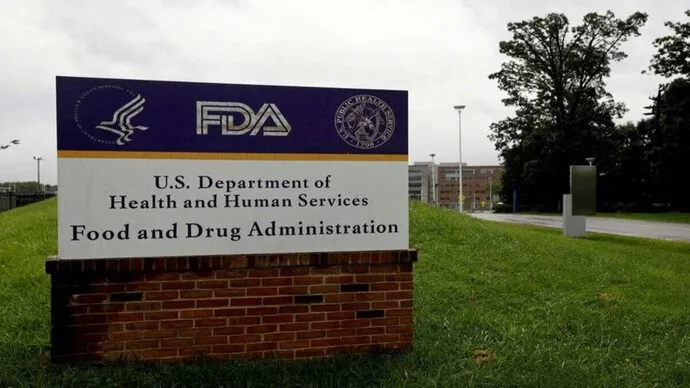Long Description: FDA’s Move to Phase Out Ineffective Decongestant Phenylephrine: A New Era in Cold Medicine
In a significant development in the field of cold medicine, the U.S. Food and Drug Administration (FDA) has proposed phasing out phenylephrine, the decongestant used in many over-the-counter cold and allergy medications. The move has sparked considerable discussion, as phenylephrine has been a mainstay in products like Sudafed, Dayquil, and various others for years. However, after years of research and mounting evidence, the FDA has concluded that phenylephrine, when taken in oral form, does not effectively relieve nasal congestion. This change is a direct result of expert reviews and a growing body of research indicating that phenylephrine fails to offer the intended benefits.
Background of the Phenylephrine Controversy
Phenylephrine has been a commonly used decongestant in a wide range of cold and flu medicines. It is also an ingredient in many over-the-counter remedies designed to alleviate symptoms associated with nasal congestion, such as those caused by a cold or seasonal allergies. Despite its widespread use, several experts have questioned its effectiveness for years. Notably, researchers from the University of Florida have been vocal in calling attention to the ineffectiveness of phenylephrine in treating nasal congestion. Their research, which dates back to 2007, led to a formal petition urging the FDA to reassess the drug’s efficacy. Despite the concerns raised by academics and health professionals, phenylephrine remained a staple ingredient in many cold medicines until the FDA’s recent actions.
The FDA’s Decision
In 2024, after a thorough review by federal health advisers, the FDA made a landmark decision to propose the removal of phenylephrine from oral decongestants. The review was based on several large, well-conducted studies that showed no significant difference between phenylephrine and a placebo in terms of effectiveness at clearing nasal passages. The conclusion that phenylephrine is ineffective in oral forms came after revisiting data from previous decades, including studies from the 1960s and 1970s that initially supported the drug’s use. However, these older studies were found to have serious flaws, casting doubt on their conclusions.
As a result of this finding, the FDA is now set to move forward with a process that will eventually lead to the removal of phenylephrine from over-the-counter medications, including tablets, capsules, and liquid solutions. This move will likely have a significant impact on the cold and allergy medication market, valued at approximately $1.8 billion annually in the U.S.
Why Does Phenylephrine Not Work?
Phenylephrine works by constricting the blood vessels in the nasal passages, which theoretically helps reduce swelling and congestion. However, studies have found that when phenylephrine is taken orally, it is quickly broken down in the digestive system, preventing it from reaching the bloodstream and subsequently the nasal passages. According to Leslie Hendeles, a professor emeritus at the University of Florida, phenylephrine “is inactivated in the gut and doesn’t get into the bloodstream, so it can’t get to the nose.” Despite attempts to increase the dose of phenylephrine, even higher doses have failed to demonstrate any real benefit in relieving congestion.
The Safety Concerns Around High Doses of Phenylephrine
One of the key concerns raised by experts is the potential safety risks associated with taking higher doses of phenylephrine in an attempt to overcome its ineffectiveness. Research suggests that increasing the dose may elevate blood pressure to unsafe levels, especially for individuals with underlying cardiovascular issues. This makes the use of higher doses of phenylephrine problematic, as it could have dangerous side effects. As Randy Hatton, a professor at the University of Florida, points out, “The risk is raising blood pressure so high that it could be hazardous to patients.”
Alternatives to Phenylephrine
With phenylephrine’s effectiveness called into question, many consumers will need to look for alternative remedies to treat their congestion. Fortunately, there are several effective options available, though many of them require visiting the pharmacy counter. For those who prefer oral medications, pseudoephedrine is the decongestant most commonly recommended by doctors. Unlike phenylephrine, pseudoephedrine has been proven to effectively relieve nasal congestion. However, due to its potential to be used in the illegal production of methamphetamine, pseudoephedrine-containing products are now regulated and kept behind the pharmacy counter. Consumers must show a photo ID and sign a logbook to purchase these products.
Aside from oral medications, there are other options that can help alleviate nasal congestion. Nasal sprays, such as saline solutions, are often recommended to clear mucus from the nose. For long-term relief, doctors recommend nasal steroids like Flonase, Nasacort, and Rhinocort. These medications work by reducing inflammation in the nasal passages, providing sustained relief. However, nasal steroids need to be used consistently and may not provide immediate relief for those seeking a quick fix. For quicker, short-term relief, antihistamine nasal sprays like Astepro are another option.
Phenylephrine-based nasal sprays will remain available, as these have been shown to work effectively in the nasal form. However, consumers will need to be aware that the FDA’s decision only applies to the oral forms of phenylephrine, which will be phased out over time.
The Impact on Consumers
The FDA’s decision to phase out phenylephrine in oral medications is ultimately seen as a positive step for consumers, despite the potential inconvenience. Dr. Brian Schroer, a physician at the Cleveland Clinic, believes that removing ineffective medications from the shelves will simplify the decision-making process for consumers. With fewer ineffective products to choose from, it will be easier for people to find treatments that actually work for their symptoms. While some consumers may initially be disappointed by the changes, many experts agree that the long-term effects will be beneficial.
What Happens Next?
Despite the FDA’s proposal to phase out phenylephrine, it will be some time before these changes are fully implemented. The FDA is required to take public comments on the proposed changes, including feedback from consumers, health professionals, and pharmaceutical companies. Once the public comment period is over, the FDA will review the feedback and issue a final decision. Drugmakers will then have a year or more to remove or reformulate their products to comply with the new regulations. In the meantime, consumers will continue to find phenylephrine-based products on store shelves, although this will change in the future.
The FDA’s decision to phase out phenylephrine in oral medications marks a significant shift in the landscape of cold and allergy treatments. This move is based on years of research and expert recommendations, which concluded that phenylephrine is ineffective at relieving nasal congestion when taken orally. While this decision will require consumers to seek alternative treatments, it ultimately benefits public health by removing ineffective products from the market. As the FDA’s process moves forward, consumers can look forward to more effective and reliable options for managing their cold and allergy symptoms.











